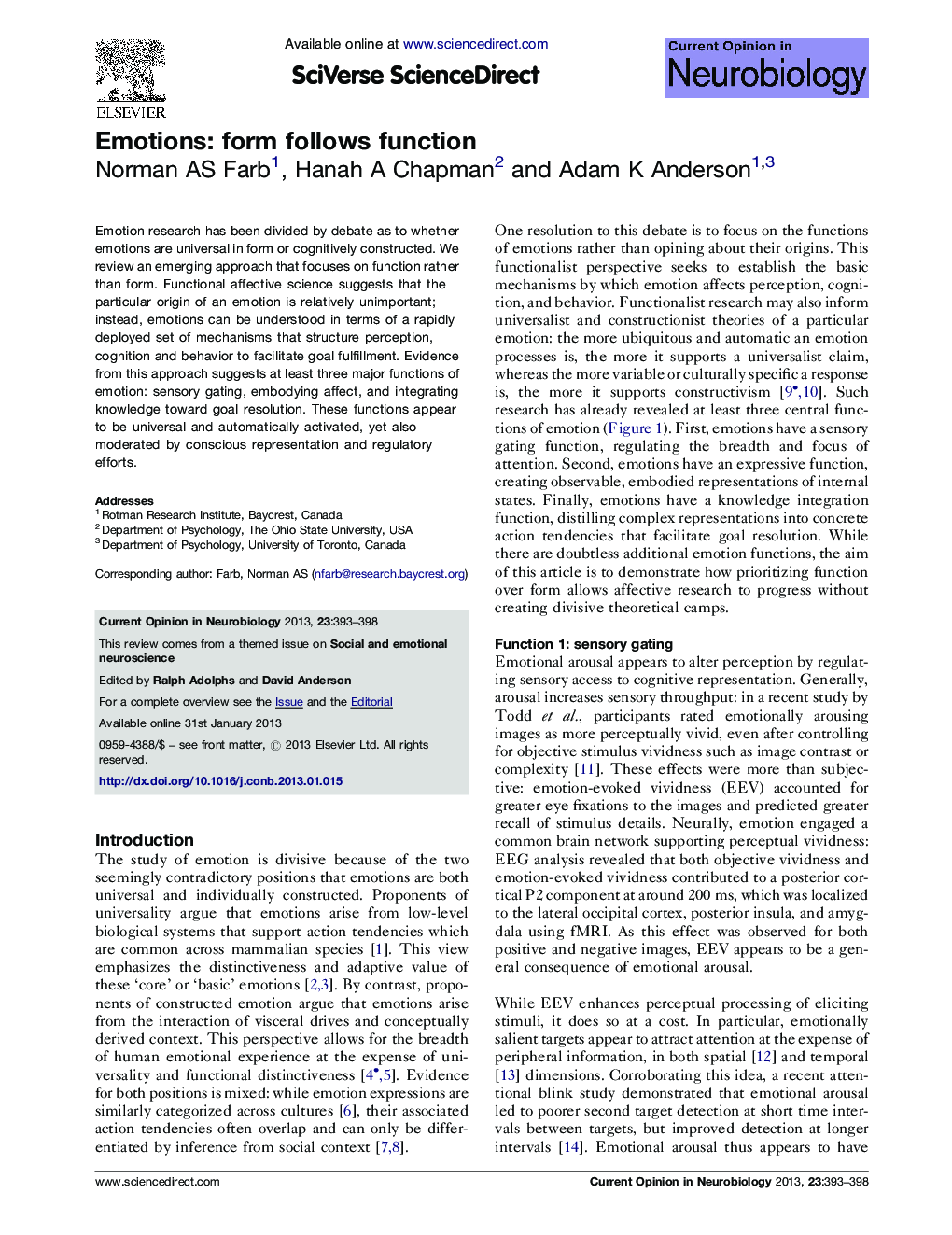| Article ID | Journal | Published Year | Pages | File Type |
|---|---|---|---|---|
| 6267180 | Current Opinion in Neurobiology | 2013 | 6 Pages |
Emotion research has been divided by debate as to whether emotions are universal in form or cognitively constructed. We review an emerging approach that focuses on function rather than form. Functional affective science suggests that the particular origin of an emotion is relatively unimportant; instead, emotions can be understood in terms of a rapidly deployed set of mechanisms that structure perception, cognition and behavior to facilitate goal fulfillment. Evidence from this approach suggests at least three major functions of emotion: sensory gating, embodying affect, and integrating knowledge toward goal resolution. These functions appear to be universal and automatically activated, yet also moderated by conscious representation and regulatory efforts.
⺠Emotions can be studied via their functional effects on perception and behavior. ⺠Arousing stimuli lead to spatially and temporally narrow attention capture. ⺠Positive and negative moods broaden and narrow attention, respectively. ⺠Internal emotion states are expressed through embodied behavioral responses. ⺠Adaptive behavior depends upon deriving concrete emotions from abstract situations.
